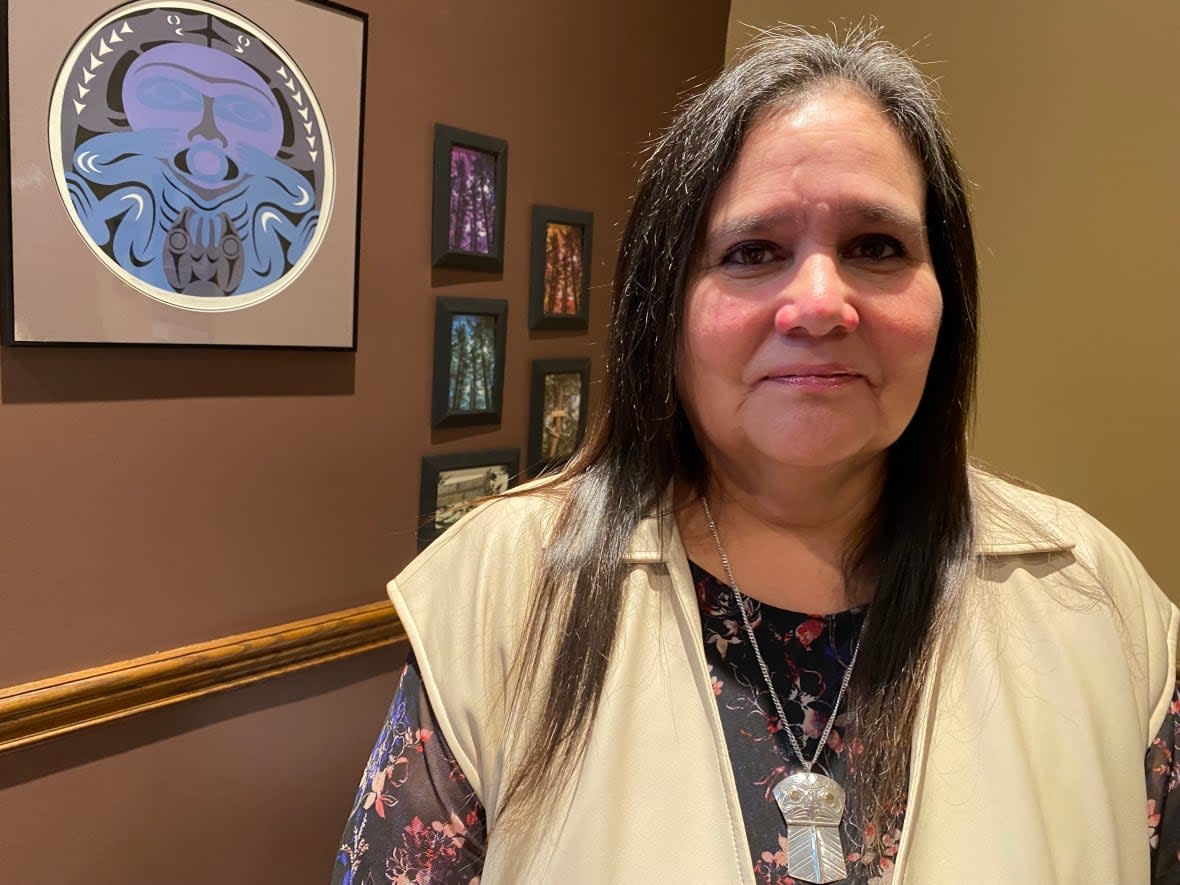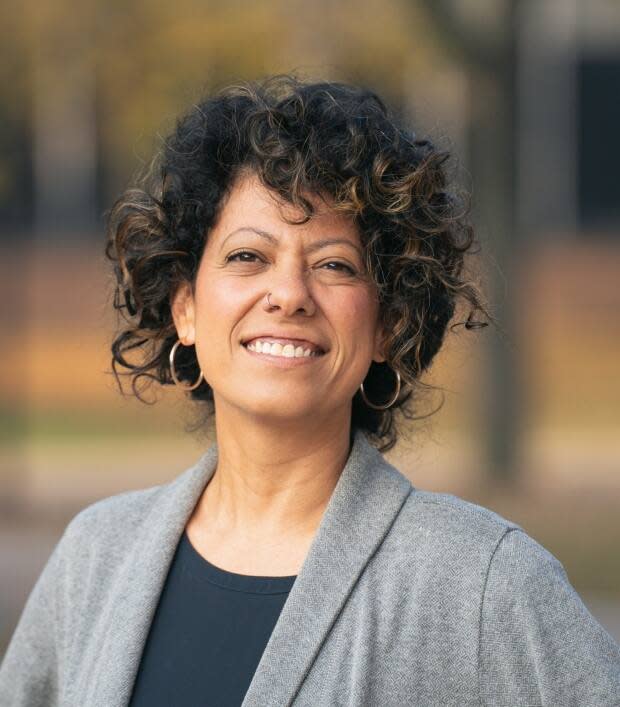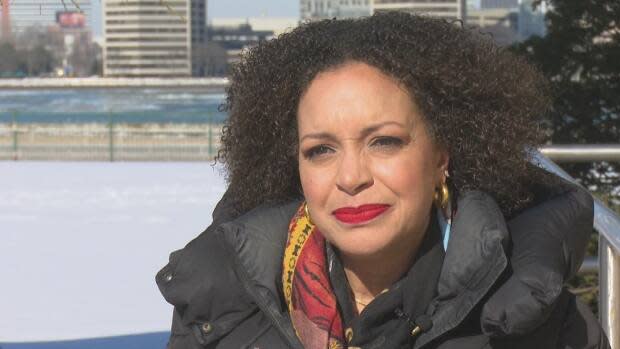Council should reconsider 'very serious' issue of all-white police board, says Indigenous advocate

Criticism over the all-white Windsor police services board continues, with a prominent Indigenous community member now asking city council to reconsider its recent public appointment.
Beverly Jacobs said she wasn't surprised to learn council appointed Sophia Chisholm to a four-year term on the police board last month. However, she said it highlights a "very serious" ongoing issue: Indigenous people and others from racially diverse groups aren't being included in governance positions that affect them.
"It's serious because everything has been white. Systems are white. Colonial systems are white. University systems are white. Police systems are white. Colonial law is white," said Jacobs, who's currently the senior advisor to the president of the University of Windsor on Indigenous relations and outreach.
"The more that people can understand the privilege that they've been in, in those positions, even positions of power like that, to understand that there are shifts that need to happen, because it can no longer be white," she said.
Historically, the relationship between police in Canada and Indigenous people hasn't been good, going as far back as children being taken by police from their families to be put into residential schools. Jacobs said that's another valuable reason for an Indigenous voice to be heard at the police board.
Police boards in Ontario are tasked with hiring of chiefs and deputy chiefs, and establishing policies that ensure an effective police service.
"[It] still has an impact on the direction that policing can take in the City of Windsor. As Indigenous people, establishing better relations, that's what governance is all about. ... That's a big task of healing the relationship between Indigenous people and policing," said Jacobs, who also teaches at the university's law faculty.

The city received 48 applicants for the position on the police board, including people from diverse communities, such as Natalie Delia Deckard. She's the founding director of the Black Studies Institute and a criminology professor who has researched the relationship between law enforcement and marginalized communities.
Windsor mayor Drew Dilkens, who's also chair of the police board, previously told CBC News he supported Chisholm's appointment, in part, because he's "very comfortable with her." That decision was made during an in-camera meeting.
"She's extremely well suited and extremely competent to serve on the Windsor police services board," he added.
CBC News has reached out to Chisholm for comment, but has not received a response.

Camille Armour has been vocal on social media about Dilkens's response to a lack of diversity on the police board. She's a founding member of the group Black Women of Forward Action.
She called his comments disappointing and complacent.
"No matter how well-intended or articulate a white person is, they can never inform on issues that affect Black and brown people, better than a Black or brown person. They may think they know, but they don't know better, and that's a problem," said Armour.
"Change is not an easy thing, and it has to start somewhere," said Armour. "It was a missed opportunity."
She said some of what's happening at the Windsor Police Service right now isn't working. Armour points to data that shows an overrepresentation of people of colour, "in terms of negative interactions with the Windsor Police Service."
"It can't be tokenized. There has to be real genuine processes to listen and to ensure the voices of Indigenous peoples are heard at those tables, that it just doesn't become a show. - Beverly Jacobs, senior advisor to University of Windsor president on Indigenous relations
Windsor police use-of-force data show 16 per cent of civilians in those interactions were Black between September and December 2022. Black people make up about five per cent of the population in Windsor and Amherstburg. Windsor has been policing the latter since 2019.
"There's so much said about Windsor [being] one of the most diverse cities in Canada, but if there's no inclusion, then it doesn't matter," said Armour.
'It is what it is,' said one councillor about lack of diversity on police board
CBC News reached out to all 10 Windsor city councillors. Jo-Anne Gignac, Mark McKenzie, Fred Francis and Fabio Costante did not respond. Downtown councillor Renaldo Agostino declined to comment.
Gary Kaschak declined an interview, but said "it's kind of old news."
"It is what it is. This one, I'll go no comment on," Kaschak added.
Councillor Kieran McKenzie said this may spark deeper discussions about promoting diversity in municipal boards.
Ed Sleiman, who represents Ward 5, said council's appointment to the police board is someone who's "doing a lot for the community."

Ward 7 councillor Angelo Marignani agrees there should be appropriate representation on boards, but declined to discuss the lack of diversity on the police board.
"At this point in time, I'll stay away from that," he told CBC News.
Councillor Jim Morrison said this raises questions about how to expand the police board to include more voices.
"From what we had to choose from, we went with two women," he said.
Incoming Ontario legislation requires diversity on municipal boards
The Comprehensive Ontario Police Services Act, not yet passed or in effect, will eventually require municipal boards to be "representative of the diversity of the population in the municipality."
CBC News asked the the mayor's office if Dilkens was aware of this incoming legislation prior to Chisholm's appointment, and if he was reconsidering the decision.
In response, Dilkens's chief of staff, Andrew Teliszewsky, pointed to the incoming legislation allowing the board to expand to seven or nine members, with council's approval.
"If that were to occur, then additional vacancies would result," he said in an email.

There is one vacancy on the Windsor Police Services Board that will be filled by a provincial appointment. That seat was recently left vacant by Denise Ghanam, whose term wasn't renewed.
Currently, the police board consists of Dilkens, Gignac, Chisholm and provincial appointee Robert de Verteuil.
Armour and Jacobs both agree that's not good enough.
"One of the easiest steps to do would be to include brown and Black voices to set policy for a police service where there are negative interactions with brown and Black people. There is a problem, and it would be logical to help address that by hearing from brown and Black," said Armour.
"It can't be tokenized. There has to be real genuine processes to listen and to ensure the voices of Indigenous peoples are heard at those tables, that it just doesn't become a show," said Jacobs.


